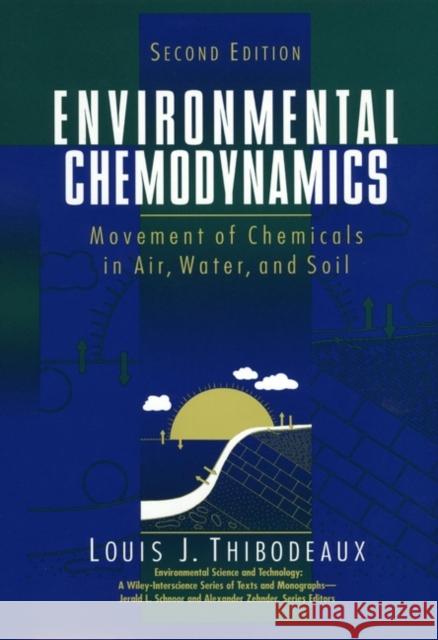Environmental Chemodynamics: Movement of Chemicals in Air, Water, and Soil » książka
Environmental Chemodynamics: Movement of Chemicals in Air, Water, and Soil
ISBN-13: 9780471612957 / Angielski / Twarda / 1996 / 624 str.
What happens to a chemical once it enters the natural environment? How do its physical and chemical properties influence its transport, persistence, and partitioning in the biosphere? How do natural forces influence its distribution? How are the answers to these questions useful in making toxicological and epidemiological forecasts?
Environmental Chemodynamics, Second Edition introduces readers to the concepts, tools, and techniques currently used to answer these and other critical questions about the fate and transport of chemicals in the natural environment. Like its critically acclaimed predecessor, its main focus is on the mechanisms and rates of movement of chemicals across the air/soil, soil/water, and water/air interfaces, and on how natural processes work to mobilize chemicals near and across interfaces--information vital to performing human and ecological risk assessments.
Also consistent with the first edition, Environmental Chemodynamics, Second Edition is organized to accommodate readers of every level of experience. The first section is devoted to theoretical underpinnings and includes discussions of mass balance, thermodynamics, transport science concepts, and more. The second section concentrates on practical aspects, including the movement between bed-sediment and water, movement between soil and air, and intraphase chemical behavior.
This revised and updated edition of Louis J. Thibodeaux's 1979 classic features new or expanded coverage of:
* Equilibrium models for environmental compartments
* Dry deposition of particles and vapors onto water and soil surfaces
* Chemical profiles in rivers and estuaries, particles and porous media
* Fate and transport in the atmospheric boundary layer and within subterranean media
* Chemical exchange between water column and bed-sediment
* Intraphase chemical transport and fate
This Second Edition of Environmental Chemodynamics also includes twice as many references and 50% more exercises and practice problems.











